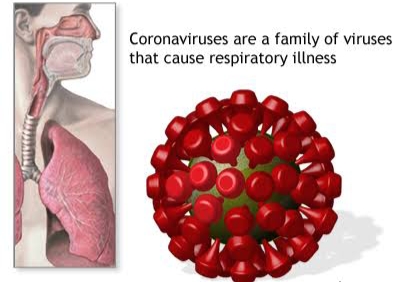Coronavirus: Causes, symptoms and treatment

The newly emerged virus infection, Covid-19, took lives of million people all around the world. The outbreak is believed to have started from Wuhan, China which eventually spread worldwide. The situation worsened day by day in every country, leading the World Health Organisation (WHO) to declare Covid-19, a pandemic.
About the virus
Coronaviruses are a family of viruses from bat mammal, that can cause illnesses such as the common cold, severe acute respiratory syndrome (SARS) and Middle East respiratory syndrome (MERS). There are still numerous types of coronavirus that are yet to be discovered which are circulating amongst animals and haven’t yet affected humans. The virus responsible for 2019 pandemic is known as the severe acute respiratory syndrome coronavirus 2 or SAR- CoV-2.
Causes of coronavirus spread
Certain sources point at Wuhan wet market to be the root cause of the pandemic due to slaughtering of wild animals. But, researchers aren’t sure of what is the exact cause. Although, humans get the infection from contact with animals, which then can spread from human to human. It can The virus follows a chain pattern transmission. The R0 value is the factor used by scientists, to know the contagious level of a virus. In case of Covid-19, the value is 2 to 2.5, which means one virus can infect two people that eventually after ten rounds of transmission cycle can infect more than 2047 sick. So, this is a serious threat to mankind.
Symptoms of coronavirus
The symptoms of the coronavirus infection are similar to common flu and upper respiratory tract infection. Symptoms range from mild to severe. It takes 2 to four days after exposure for symptoms to develop. Common symptoms are fever, cough and tiredness. In some cases, these common symptoms may have occurred due to common flu, get it checked and these medications are available at any medical store home delivery provision. Other symptoms include shortness of breath or difficulty while breathing, muscle aches, chills, sore throat, loss of taste or smell, headache and chest pain. There are some less common symptoms that are reported like rashes, nausea, vomiting and diarrhea. Aged people of who have existing chronic medical conditions such as heart disease, lung disease, diabetes, severe obesity, chronic, who have compromised immune system and kidney or liver disease may be at higher risk of serious illness. Few people may have pneumonia too, about a week after symptoms start.
Diagnosis of coronavirus
If you experience the symptoms of Covid-19 or have been in contact with someone diagnosed of the same, consult a doctor or clinic immediately to seek medical advice. Doctor may run tests to rule out other common infections using a blood, saliva or tissue sample. Most tests use a cotton swab to retrieve a sample from the inside of the nostrils. The sample will be sent to designated laboratory for further testing where it is analysed by means of a technique known as polymerase chain reaction (PCR). This technique detects the genetic layout of any infectious viral stain in the tissue of the patient and displays a match with that of SARS- CoV-2 strain of coronavirus, if the two resemble each other exactly then the patient is declared coronavirus positive. Another method is antibody testing, where the blood sample of the person is obtained by prick on fingers followed by examining for antibodies that may have been synthesised to combat the coronavirus.
Treatment for coronavirus
There is no treatment or cure for an infection of coronavirus. Although, research is on process as to discovery of vaccine or drug for the same. Recently, UK scientists have recommended ‘Dexamethasone’ tablets which they claim to have helped to save lives pf people seriously ill with coronavirus. According to an analytics firm, GlobalData, out of 21 ongoing coronavirus trials, 16 have produced positive results. Nearly 69% of these clinical trials are currently in phase I and phase Ⅱ. There are more 597 planned clinical trials in the coming month. Hope, a key treatment drug for Covid-19 emerge soon.
According to WHO, around 80% of people who get Covid-19 will recover without the need of hospitalization. While, the remaining 20% become seriously ill and develop difficulty in breathing. And of people whose test turn negative for Covid-19 but might have other common infection can take medicines as prescribed and follow isolation for some days. One can continue their medication and avoid public appearances by availing orders through best healthcare service provider in India.
It’s necessary for all to maintain both physical and mental health. One must follow the safety measures of wearing mask and gloves and maintain social distancing. The rules laid by respective governments has to be taken seriously to stop the transmission of coronavirus.
